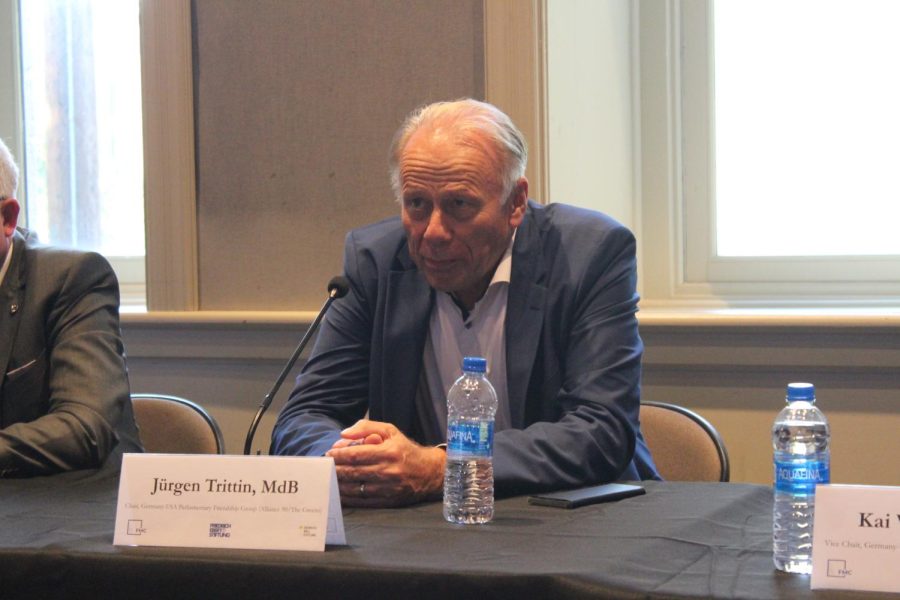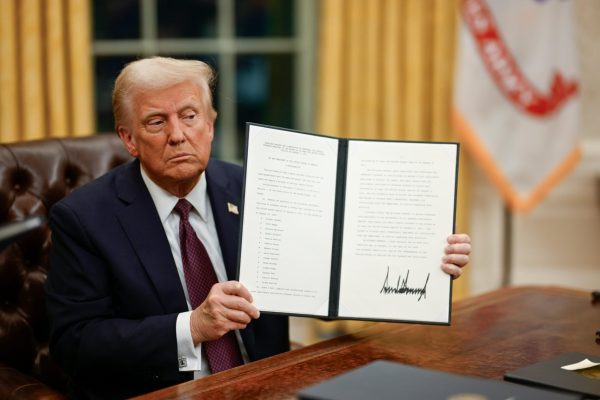Members of German Parliament Host Town Hall at Dickinson
Six members of the German parliament held a town hall in the Stern Center in an event sponsored by the German Department, where they answered questions from a Dickinson professor and students.
Each member represented one of the six parties in the Bundestag, Germany’s parliament, which is most comparable to the U.S. House of Representatives. The delegation included Jürgen Trittin (The Greens) who is the chair of the delegation, Sevim Dağdelen (The Left), Metin Hakverdi (Social Democratic Party), Andrew Ullmann (Free Democratic Party), Harald Weyel (Alternative for Germany), and Kai Whittaker (Christian Democratic Union). The discussion was moderated by Kamaal Haque, Associate Professor of German.
The impact of the Russian invasion of Ukraine was a key point during much of the discussion, due to the many ways it impacts not just Europe, but the rest of the world. In his answer to the first question of how to deal with a rough upcoming winter in Germany, Trittin discussed the need to “overcome this tendency, this addiction,” to fossil fuels. This is because Germany receives significant amounts of gas from Russia, meaning that in the face of reduced access to that supply, it has turned to other nations to ratchet up environmentally harmful practices like fracking.
Whittaker questioned reliance on other nations, specifically for security. He said, “we don’t want to be dependent on the election result in Pennsylvania, who sits in the White House, which determines what kind of security policy we have in Europe.”
Meanwhile, there were proud feelings regarding the role of the European Union. Whittaker praised the European Union in its response to the war in Ukraine, especially given how many different parties and beliefs there are across its member states. Hakverdi also praised some of the EU’s other recent accomplishments, such as welcoming Denmark to the group’s common defense agreement.
There was some conflict within the delegation, especially by Weyel, a part of Germany’s furthest right party. Weyel said that issues such as the Russian invasion of Ukraine are “misused… when you talk about the climate crisis,” Ullmann responded that most of the delegation are realists who are “science driven and are fully aware of what is happening” and that “sometimes there are parties in the German parliament that think differently, and… a majority of us in front of you do not think that way.”
Dağdelen also broke from the consensus, saying the Russian invasion of Ukraine is a crime. She claimed it is an “illusion” that sanctions against Russia can stop the war. She also said that her “aim is to stop the war, and stop the killings,” something she says the sanctions are not doing.







